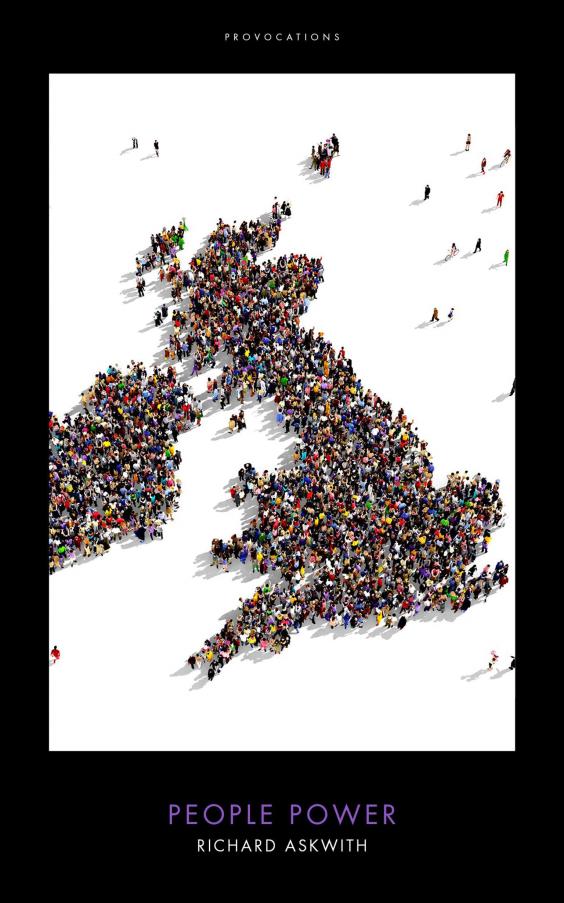 Béatrice Bouniol has been showing some interest in sortition in her stories at La Croix. Last November, on the occasion of the publishing of a new book on the subject of “The Citizens Assembly of the Future”, Bouniol had the following story.
Béatrice Bouniol has been showing some interest in sortition in her stories at La Croix. Last November, on the occasion of the publishing of a new book on the subject of “The Citizens Assembly of the Future”, Bouniol had the following story.
The idea of a Citizens Chamber gains ground
During COP 23, the Foundation for Nature and Man calls on France to make a democratic innovation by establishing a Citizen Assembly for the Future. Facing a crisis of representation, a citizens’ third chamber, an idea which has been discussed for about twenty years, gains ground.
On July 3rd, 2017, speaking in front of Congress, Emmanuel Macron proposed the transformation of the Social and Environmental Economy Council (CESE) into a Chamber of the Future, “a forum of our Republic” aimed at becoming “the crossroad of public deliberation”. Dominique Bourg, president of the scientific council of the Foundation for Nature and Man – created by Nicolas Hulot – having advocated the creation of such a chamber since 2011, was thus pleased at the proposal, but expressed his worry on the pages of La Croix that it could be a mere “rebranding – certainly necessary but far below what is desired.” The programmatic essay that appears today under his direction (Inventing the 21st Century Democracy: The Citizen Assembly of the Future. [Inventer la démocratie du XXIe siècle. L’Assemblée citoyenne du futur, Les Liens qui libèrent/Fondation pour la Nature et l’homme, 2017]) aims therefore to remind the President of the Republic of the conditions required for creating a Citizen Assembly for the Future.

The hall of the Social and Environmental Economy Council, at Iena Square, Paris.
In order to go beyond a feel-good formula, the establishment of a third parliament chamber must rest on an effort of democratic creativity, required by an unprecedented situation. At the age of the anthropocene (a new geological period defined by the impact of humans on their environment), reported by a group of researchers, it is necessary to systematically take into consideration of the impact of laws on the long term, that is, of their influence on the large scale physical and biological evolution of the planet.
Continue reading →
Filed under: Press, Proposals, Sortition | 5 Comments »
 How can we fix our broken democracies? What lessons can we learn from the past and what bold new democratic experiments are happening right now? At Thinking on Sunday on March 11 at Conway Hall, and together with London Futurists and GlobalNet21, Brett Hennig, author of The End of Politicians: Time for a Real Democracy, will take you back in time through history before jumping back to the future to show how a real democracy of, by and for the people could work. Tickets are now available at http://buytickets.at/conwayhallethicalsociety/138492
How can we fix our broken democracies? What lessons can we learn from the past and what bold new democratic experiments are happening right now? At Thinking on Sunday on March 11 at Conway Hall, and together with London Futurists and GlobalNet21, Brett Hennig, author of The End of Politicians: Time for a Real Democracy, will take you back in time through history before jumping back to the future to show how a real democracy of, by and for the people could work. Tickets are now available at http://buytickets.at/conwayhallethicalsociety/138492


 Richard Askwith, a former executive editor of The Independent,
Richard Askwith, a former executive editor of The Independent, 

 The assignment of the European Medicines Agency (EMA) to Amsterdam by lot – to the detriment of Milan – was made official at the EU General Affairs Council on 20 November. But it has now emerged that there is no documentary evidence to reassure European citizens everything was done correctly and according to the rules; the procedure displayed unprecedented anomalies and levels of secrecy, culminating in selection by lot. The representatives of Italy and the Netherlands were not even called to supervise the proceedings at close hand. “Even in children’s tournaments the referee allows the two team captains to watch the toss of the coin …”, commented one ambassador present on the day.
The assignment of the European Medicines Agency (EMA) to Amsterdam by lot – to the detriment of Milan – was made official at the EU General Affairs Council on 20 November. But it has now emerged that there is no documentary evidence to reassure European citizens everything was done correctly and according to the rules; the procedure displayed unprecedented anomalies and levels of secrecy, culminating in selection by lot. The representatives of Italy and the Netherlands were not even called to supervise the proceedings at close hand. “Even in children’s tournaments the referee allows the two team captains to watch the toss of the coin …”, commented one ambassador present on the day.
 An interesting article by Lucy Parry about the Australia mini-publics in
An interesting article by Lucy Parry about the Australia mini-publics in  Mathematician and professor of computer science Jeffrey Shallit has
Mathematician and professor of computer science Jeffrey Shallit has 